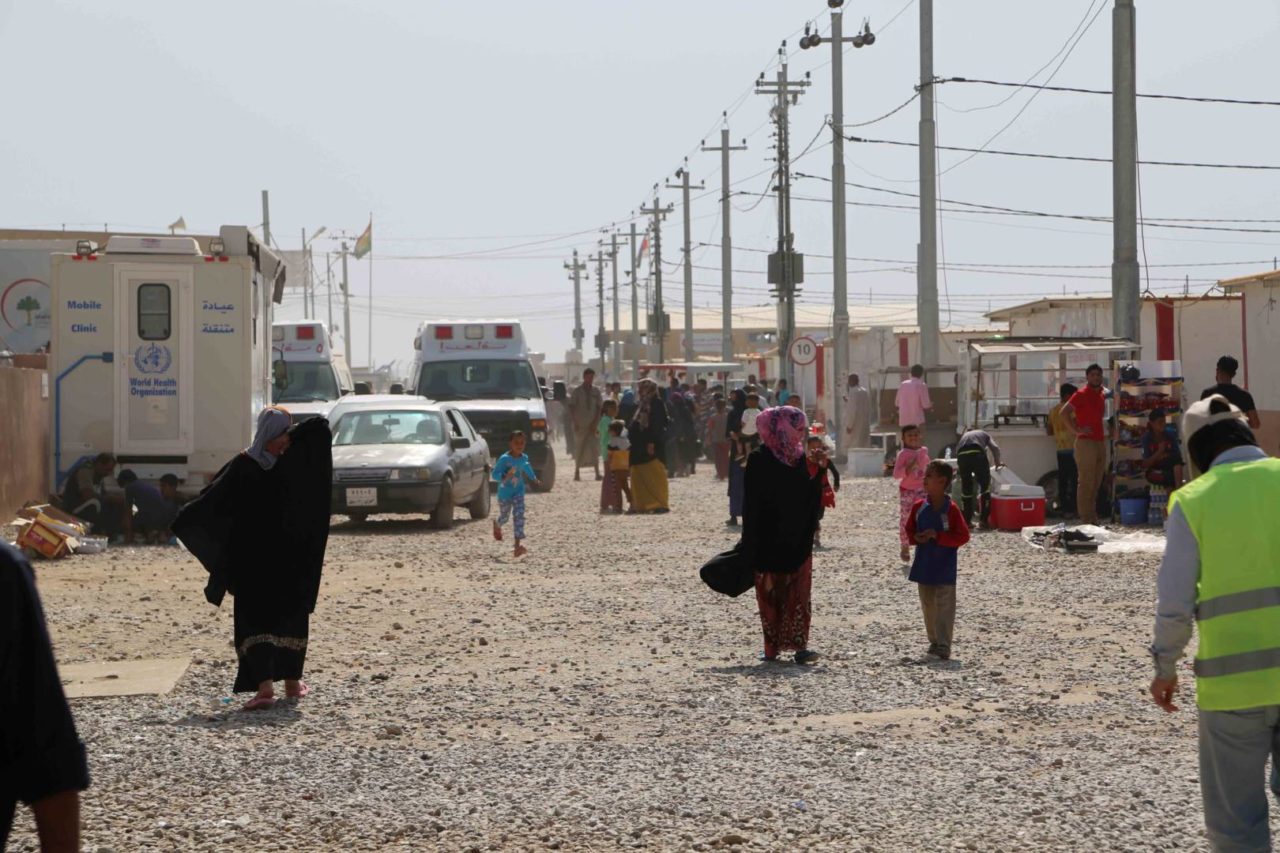
In 2014, conflict erupted in northern Iraq and ISIS took control of much of the northern province of Ninewa.
Now, opposing military action is moving northward toward Ninewa’s provincial capital of Mosul, Iraq’s second largest city with a metropolitan area of some 1.5 million people. Experts are predicting that between half a million and one million people could be forced to flee their homes as a result of this military action. This crisis could require one the largest humanitarian response in the world this year.
World Vision has been working in northern Iraq since 2014 and is working with other humanitarian groups to prepare for this potential additional crisis.
At the same time, the nearest camps, those bordering northern Iraq near the Kurdish Region of Iraq (KRI), are close to full capacity and may not be able to handle such a large influx of people at once.
As a result, World Vision and other NGOs were asked to prepare for a potential influx of up to a million new people in need of humanitarian assistance.
Most of these survivors will flee at great risk from the conflict areas with little or nothing. These families will need the basics to survive: food, clean water, appropriate shelter and sanitation and hygiene systems (toilets, showers and garbage removal).
They will need clothing and shelter and heating to protect them from northern Iraq’s freezing winters as many will only have the clothes on their backs.
They will need medical care for injuries as well as conditions that will likely range from malnutrition and dehydration to chronic conditions like diabetes. Because of the extreme violence and destruction they’ve witnessed and experienced, many children and adults will need psychosocial support to help them process and heal.
The humanitarian community at large is planning to open new camps to the north, east and south of Mosul. Here’s how World Vision is preparing:
FOOD AND CASH
- World Vision is already providing food or ways to purchase food locally to some 400,000 people through a partnership with the World Food Program and plans to expand its existing food programs into new regions in northern Ninewa, Dohuk and Erbil as more people begin to move into these regions.
WATER. SANITATION AND HYGIENE
- World Vision is already providing clean water and is planning to expand that service into three new camps, Amalla, Debaga and Zelkan. World Vision expects to reach more than 24,000 people with clean water in this expanded effort.
- World Vision is already providing cleaning services to toilet facilities and will expand those services into Zelkan and Amalla camps.
WINTERIZATION
- With winter coming, and brutal weather ahead for northern Iraq, World Vision will be distributing thermal blankets, plastic tarpaulin, shelter insulation, heating fuel and winter clothing.
EDUCATION AND CHILD PROTECTION
- World Vision is providing a Child Friendly Space in Berseve camp and will provide additional facilities in new camps including Zelkan and Debaga
- World Vision’s Mobile Library and will expand its services to Zelekan and Debaga camps as well as designated sites around key cities.
HEALTH
- World Vision is providing and equipping mobile as well as stationary health clinics and plans to provide three additional clinics in Zumar, Makhmour/Debaga and Kalak camps.
COORDINATION
- World Vision is working alongside local governments to register newly displaced individuals and families to ensure that they are receiving appropriate and coordinated services. World Vision will continue to provide a mobile electronic registration system to aid local government agency coordination and planning.
About World Vision:
World Vision is a Christian humanitarian organization conducting relief, development, and advocacy activities in its work with children, families, and their communities in nearly 100 countries to help them reach their full potential by tackling the causes of poverty and injustice. World Vision serves all people regardless of religion, race, ethnicity, or gender. For more information, please visit www.WorldVision.org/about-us/media-center or follow us on Twitter @WorldVisionNews.